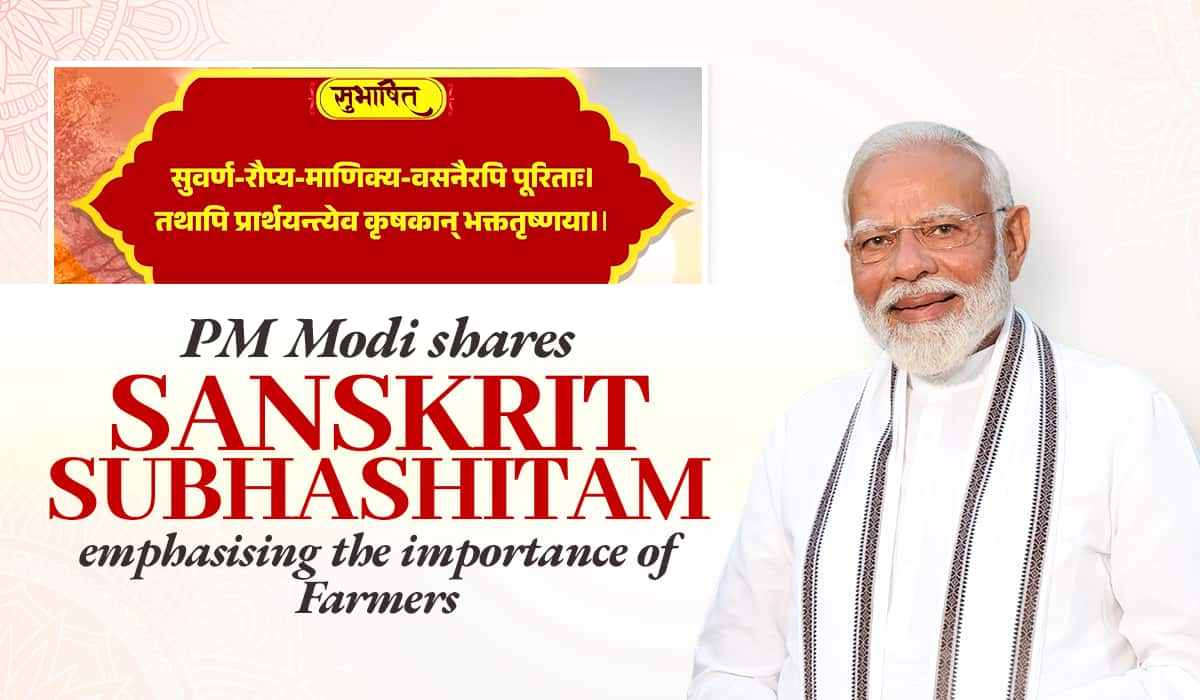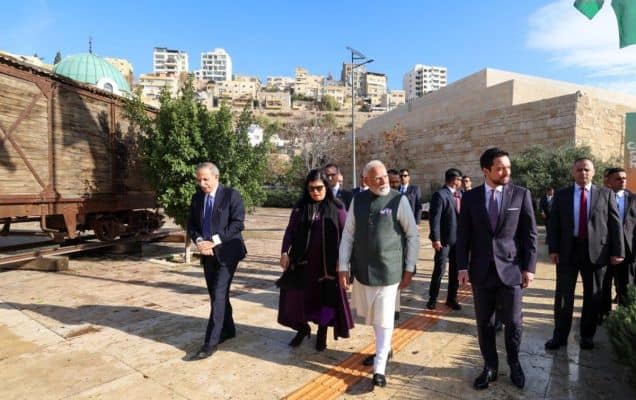Thank you, Doctor Dan Yergin, for that kind introduction. Thank you all, distinguished guests for being here.
Namaskar!
It is with great humility that I accept the CERAWeek Global Energy and Environment Leadership Award. I dedicate this award to the people of our great Motherland, India. I dedicate this award to the glorious tradition of our land that has shown the way when it comes to caring for the environment.
Friends,
This Award recognises environmental leadership. About leadership, it is commonly said that the best way to show it is through action. There is no doubt that when it comes to care for the environment, the people of India are leaders. This has been the case for centuries. In our culture, nature and divinity are closely linked. Our Gods and Goddesses are associated with some or the other tree and animal. These trees and animals are also sacred. You can pick literature from any state, in any language. You will find many examples of the close bond people and nature have enjoyed.
Friends,
In Mahatma Gandhi, we have one of the greatest environment champions to have ever lived. If humanity had followed the path given by him, we would not face many of the problems we do today. I would urge you all to visit Mahatma Gandhi's home in the coastal city of Porbandar, Gujarat. Next to his home, you will get very practical lessons on water conservation. There are underground tanks constructed over 200 years ago. They were built to save rain water.
Friends,
Climate change and calamities are major challenges today. Both are interlinked. There are two ways to fight them. One is through policies, laws, rules and orders. These have their own importance no doubt. I can share with you some examples: Share of non-fossil Sources in India's installed capacity of electricity has grown to 38 percent now. We have moved to Bharat - 6 emission norms since April 2020. This is equal to Euro- 6 fuel. India is working to increase the share of natural gas from the current 6% to 15% by 2030. LNG is being promoted as a fuel. We just launched a National Hydrogen Mission last month for use of hydrogen as fuel. Recently a scheme called PM KUSUM was announced. This will promote an equitable and decentralized model of solar energy generation. But, there is something beyond the world of policies, laws, rules and orders. The most powerful way to fight climate change is behavioural change. There is a very famous story many of you would have heard of. A small child was given a torn world map. The child was told to fix it thinking it could never be done. But, the child actually did successfully. When asked how the child did so, the child said, at the back of the world map was the figure of a man. All the child did was to assemble the figure of the man. And because of that, the world map also got assembled. The message is clear - let us fix ourselves and the world will be a better place.

Friends,
This spirit of behaviour change is a key part of our traditional habits, which teach us consumption with compassion. A mindless throw away culture is not a part of our ethos. Look at our farming methods or our foods. Look at our mobility patterns or in energy consumption patterns. I am proud of our farmers, who are constantly using modern techniques of irrigation. There is growing awareness on improving soil health and reducing use of pesticides. Today the world is focussing on fitness and wellness. There is a growing demand for healthy and organic food. India can drive this global change through our spices, our Ayurveda products and more. Likewise, take eco-friendly mobility. You would be delighted to know that in India, we are working on metro networks in 27 towns and cities.
Friends,
For large scale behaviour change, we need to offer solutions that are innovative, affordable and powered by public participation. Let me give you an example. The people of India decided to embrace LED bulbs on a scale that has never been seen before. As on first March 2021, Around 37 million LED bulbs are being used. This has saved costs and energy. Over 38 million tonnes of carbon dioxide have been reduced per year. There is another example of India's Give It Up Movement. A simple request was made to people to give up their LPG subsidy for the benefit of the more needy people. Several people across India voluntarily gave up their subsidy. This played a major role in India being able to provide smoke free kitchens to lakhs of households. LPG coverage in India has seen a remarkable growth from 55% in 2014 to 99.6% today. Women have been the major gainers due to this. These days I am seeing one more very positive change. Waste to wealth is becoming the buzzword in India. Our citizens are coming up with unique recycling models in diverse sectors. This would give a boost to the circular economy. Our country is boosting waste-to-wealth generation under Sustainable Alternative Towards Affordable Transportation initiatives. 5000 compressed biogas plants will be set up by 2024 with a production target of 15 MMT. It would help the environment and further human empowerment.
Friends,
There is growing acceptance to ethanol across India. Based on people's response, we have decided to advance the target of 20% blending of ethanol in petrol by 2025, from the earlier 2030.
Friends,
It would make you all happy that over the last seven years, India's forest cover has grown significantly. The population of lions, tigers, leopards and water fowls has grown. These are great indicators of positive behavioural changes. It is these changes that convince us that India is well on track to achieve its Paris Agreement targets well before the target date of 2030.
Friends,
India's vision for environmental transitions includes working with like-minded countries. The initial success of the International Solar Alliance has demonstrated how serious India is when it comes to making efforts for a better planet. We will keep making such efforts in the future. This is in line with Mahatma Gandhi's principle of trusteeship. At the core ofTrusteeship is collectiveness, compassion and responsibility. Trusteeship also means using resources responsibly. Mahatma Gandhi rightly said: I quote. "We may utilise the gifts of Nature just as we choose but in her books, the debits are always equal to the credits". Unquote. Nature keeps a simple balance sheet. Whatever is available or credited can be used or debited. But this has to be distributed properly because if we over consume resources we are snatching it from someone else. It is on similar lines that India is speaking about climate justice to help fight climate change.
Friends,
Now is the time to think logically and ecologically. After all, this is not about me or you. It is about our planet's future. We owe this to our coming generations. I once again thank you for the award.
Namaste.













